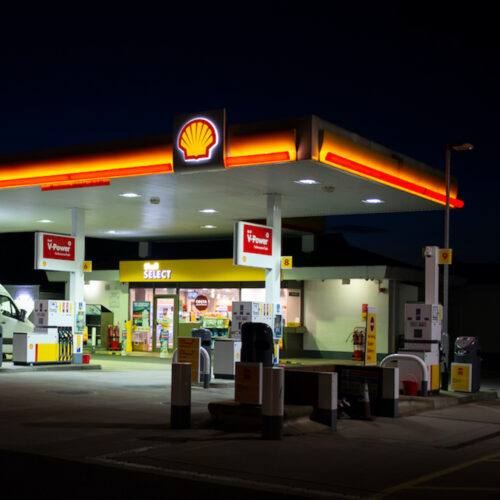SHELL has announced that it will cease to have a joint UK-Dutch head office establishment and that the group parent will be in the UK. This has been declared as a Brexit Bonus by some, and by others as a move to get laxer treatment on fossil fuels, to evade tax, and to engage in activities questionable from a money laundering point of view.
Actually this move is all about business, and not just about the added overhead of maintaining a dual HQ, or even the comparative costs of the UK and the Netherlands. A much bigger issue is what rules and regulations would trickle down onto Shell’s global network of subsidiaries due to the location of its ultimate parent company.
This should not be confused with bypassing COP26 decisions to limit the usage of fossil fuels. That possibility is simply not on the table. Shell’s business is conducted through hundreds of locally-incorporated subsidiaries that are subject to local rules: moving the corporate HQ to the UK does not shift a refinery in Antwerp. That refinery must comply, in the future as in the past, with the respective Belgian regulations.
The idea that this has something to do with laundering money is also preposterous: the UK’s current Anti-Money Laundering regime is the EU one, based on successive EU AML Directives and supplementing Regulations. For example the UK’s Funds Transfer Regulation is a direct implementation of the EU’s one (reference number 2015/847). In any case both derive from the global standards established at the Financial Action Taskforce (FATF) level, and the respective Funds Transfer Regulations are derivative of FATF Recommendation 16.
Shell’s move is about business. It may have come about after a Cost/Benefit analysis of its current structure with two HQs: what are duplicated costs, what is the extra friction cost of keeping two HQs in synch with one another, and are these costs justified by the benefits? If the answer was ‘No’, then a decision would be needed as to which was the ‘cheaper’ location, however one defines that.
The UK for sure has certain advantages in flexibility, say on labour laws, compared to the Netherlands. The all-in staff costs would be comparable in central London and Den Haag/Rijswijk, but reduced in the provincial UK by more than they would be in the provincial Netherlands.
It may not have been about comparative costs of this type at all, though, but of the better fit of the location to the needs and prosperity of the business. Shell is a completely global business, operating in some way in almost every country in the world. The EU’s law-making has for some time had as its focus the protection of the Single Market and of its cornerstone – the euro. While Shell obviously has substantial business within the EU and the Eurozone, the global petrochemicals business remains based on the US$, such that a major question arises for Shell senior management: at what point does the subjection of the entire group to EU law-making aimed at the protection of the euro result in a penalty for the group globally from which there is no benefit?
This is not unlike the UK’s situation in the EU, where the UK was outside the Eurozone, its currency (unlike Denmark’s) was outside the Exchange Rate Mechanism, it had no treaty commitment to join the euro, was not a signatory to the Fiscal Stability Treaty, and was not aligning itself voluntarily (as Sweden has) with the Eurosystem’s policies. A discussion of the full implications of this situation was the major gap in the UK debate about Brexit.
Shell will continue to have major business in the EU and Eurozone whatever happens, but, with the group HQ in the UK, EU law-making will only affect the EU/Eurozone subsidiaries, and not the ones in the USA, Brazil, Indonesia, Canada and so on. This is an exceptionally important factor in deliberations about corporate structure.
If, however, one persists with the mindset that Shell chose the UK to exploit supposed tax and financial crime loopholes, then one might consider the ‘form’ of the Netherlands in this area. The Dutch, having constructed so many glasshouses, should be the first in favour of a global ban on stone-throwing.
The Netherlands has traditionally had certain characteristics of a tax-beneficial location, and even of a tax haven. It has a very wide network of Double Taxation Treaties (DDTs) on attractive terms. This enables a company like Shell not to pay corporation tax twice on the same profits.[1]This must surely be unobjectionable. Without DTTs there would be a high extra barrier in the way of international business. Indeed, Shell should still be able to use the Dutch network of DTTs through a set of dedicated Dutch-incorporated companies for owning the shares in foreign subsidiaries and for lending money amongst companies in the group.
At the other extreme lies the ‘Dutch tax ruling’, under which a company’s annual amount of Dutch tax is fixed in advance, whatever its profits turn out to be later.[2] Every extra US$1 of profit, above the profit shown to the authorities in the advance projection, suffers a marginal tax rate of 0%: clearly abusive but hitherto unchallenged. This loophole is being closed by the G-7 agreement on a minimum 15% rate of corporation tax.
The G-7 agreement may have even been a consideration in Shell’s decision but it is not significant enough to have been the major one, nor is the comparative cost of operating in the UK compared to the Netherlands. Shell’s move is all about the core business, and is attributable to the EU’s constant introspective law-making aimed at bolstering the Single Market and the euro. Shell will have business outside the EU in proportion to the non-EU share of Global GDP. 2020 World Bank figures put that at 82% (Global GDP of US$84.6 tr less EU GDP of US$15.3 tr = non-EU GDP of US$69.3 tr). Shell will be wanting to avoid that 82% of its business be governed by irrelevant EU law-making.
It may not be the last to make such a move, and there is no reason that the cohort will be limited to the few with a joint UK HQ already.
If you appreciated this article please share and follow us on Twitter here – and like and comment on facebook here. Help support ThinkScotland publishing these articles by making a donation here.
Photo of a Shell petrol station in Wales by GarethWilley / Shutterstock.com
[1] Example: Shell (Japan) makes a profit of US$50 million and dividends it to its owner, and both the Netherlands and Japan levy corporation tax at 25%. Without a DTT, US$12.5 million would be paid over as Japanese corporation tax and the same again in the Netherlands, leading to an effective rate of 50%. With a DTT the US$12.5 million already paid in Japan creates a tax credit for the Netherlands; the Netherlands does not pay again and the effective tax rate is 25%. A DTT recognizes the tax already paid locally on the same money, when the parent comes to calculate its tax liability on the dividend. 25% is paid, either at the parent or subsidiary level.
[2] The intended characteristics of a to-be-formed Dutch company are discussed with the Dutch tax authorities, with its business volume, an intended gross profit margin, and costs, leading to a planned annual profit. That profit is multiplied by the Dutch rate of corporation tax to extrapolate the amount of tax the company will pay. This amount is then stated in a letter from the authorities to the company, but without the underlying calculations: the letter simply states that the tax payable will be a fixed amount – for all time, regardless of changes in the Dutch rate of corporation tax and regardless of how the company’s business develops. It is an open invitation to pump more business volume through, and more profits, because no extra tax becomes payable.









